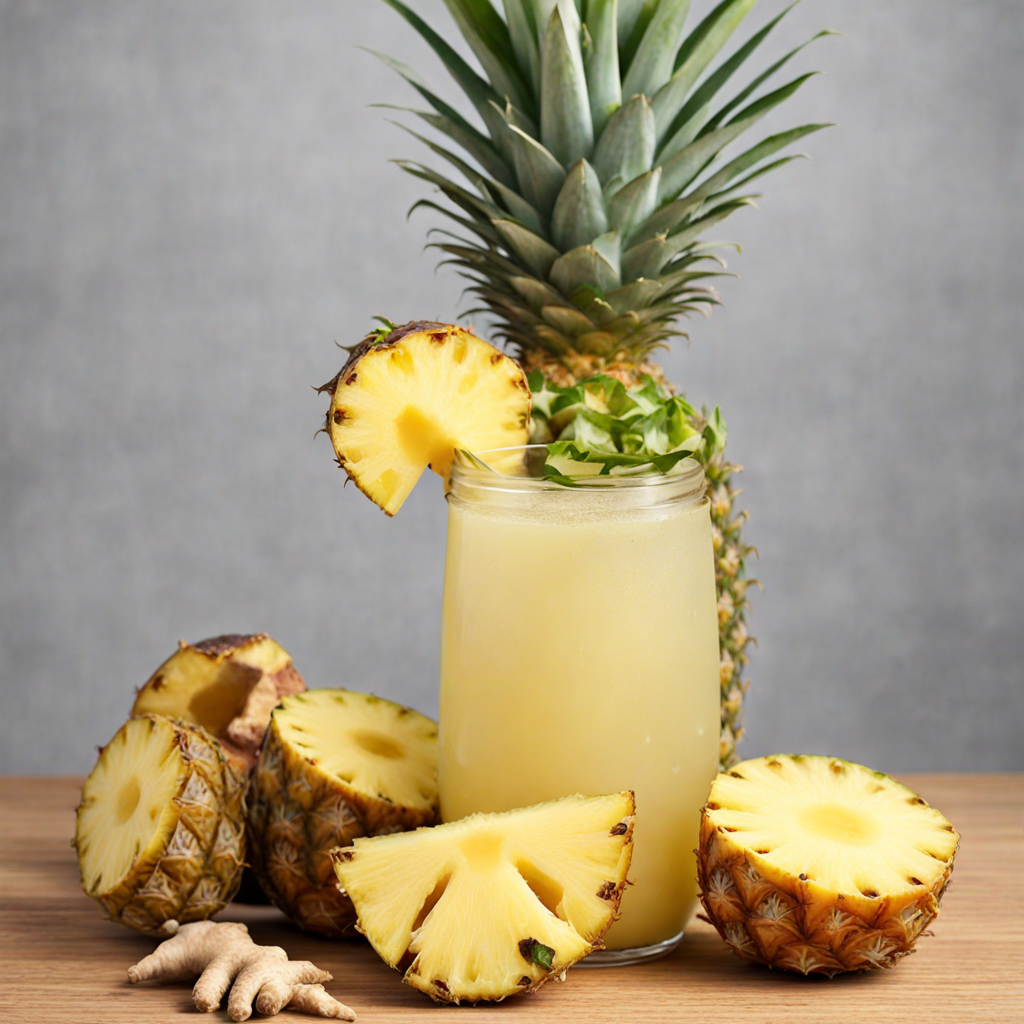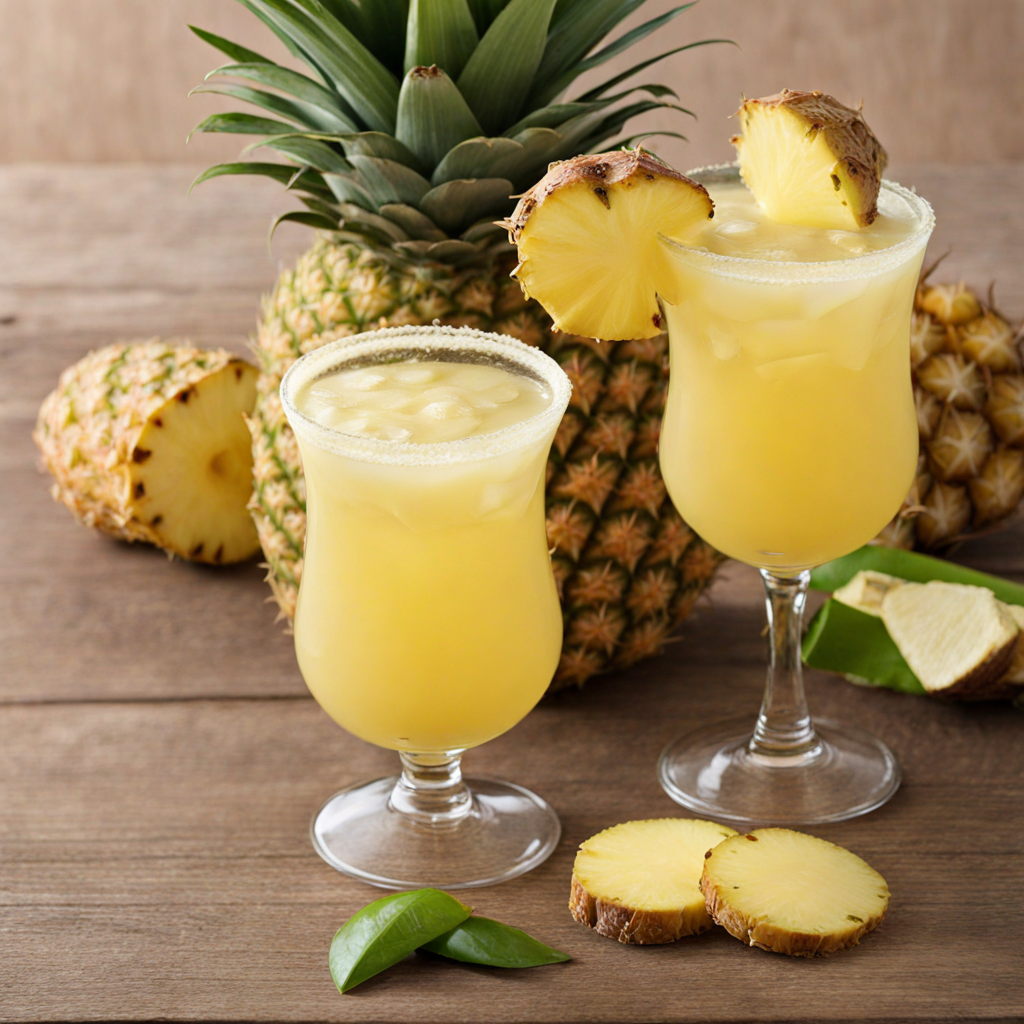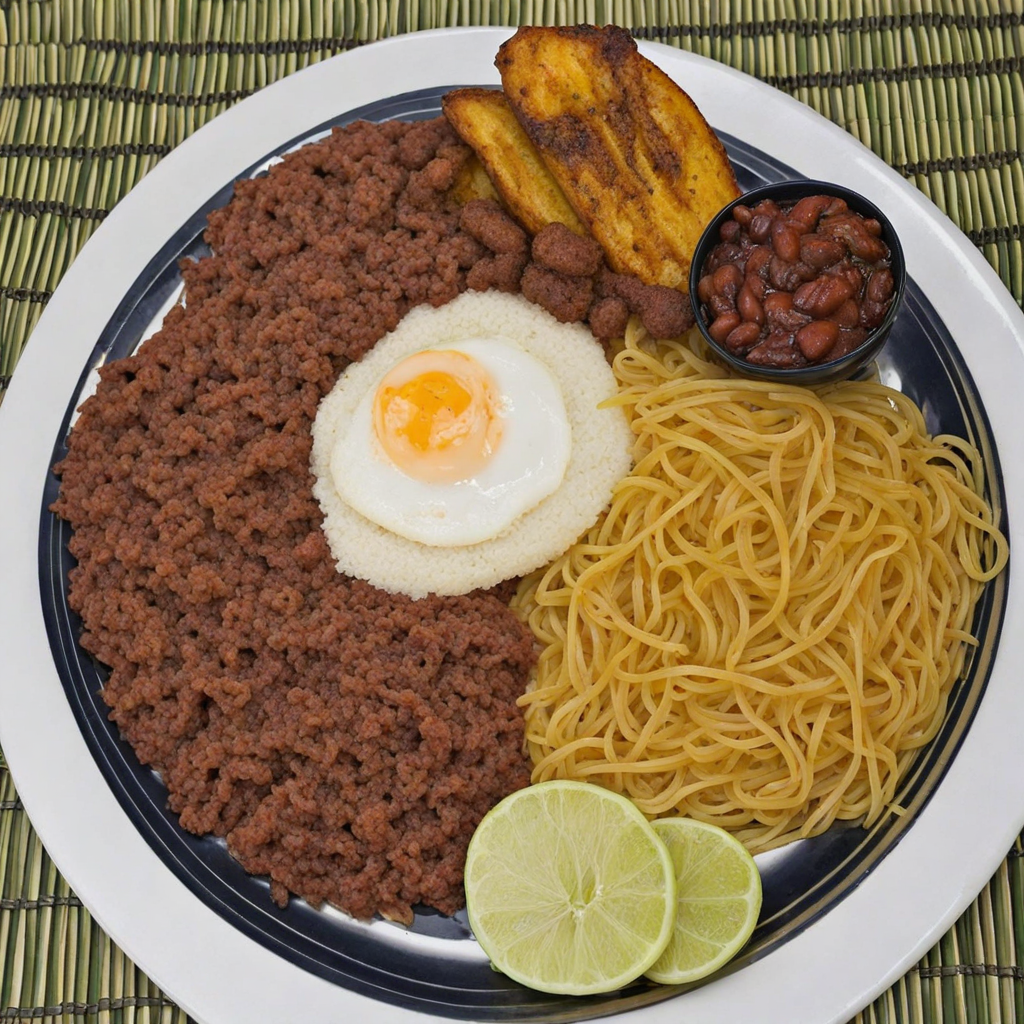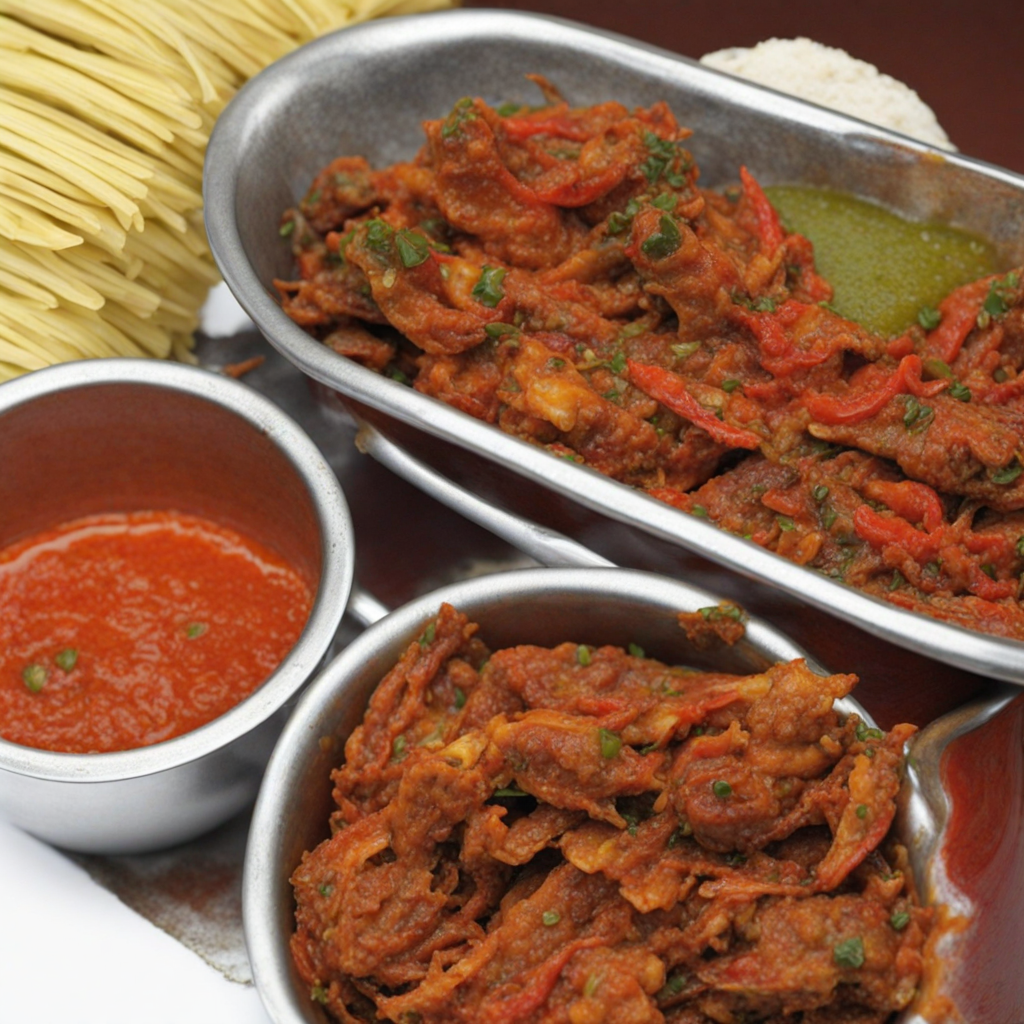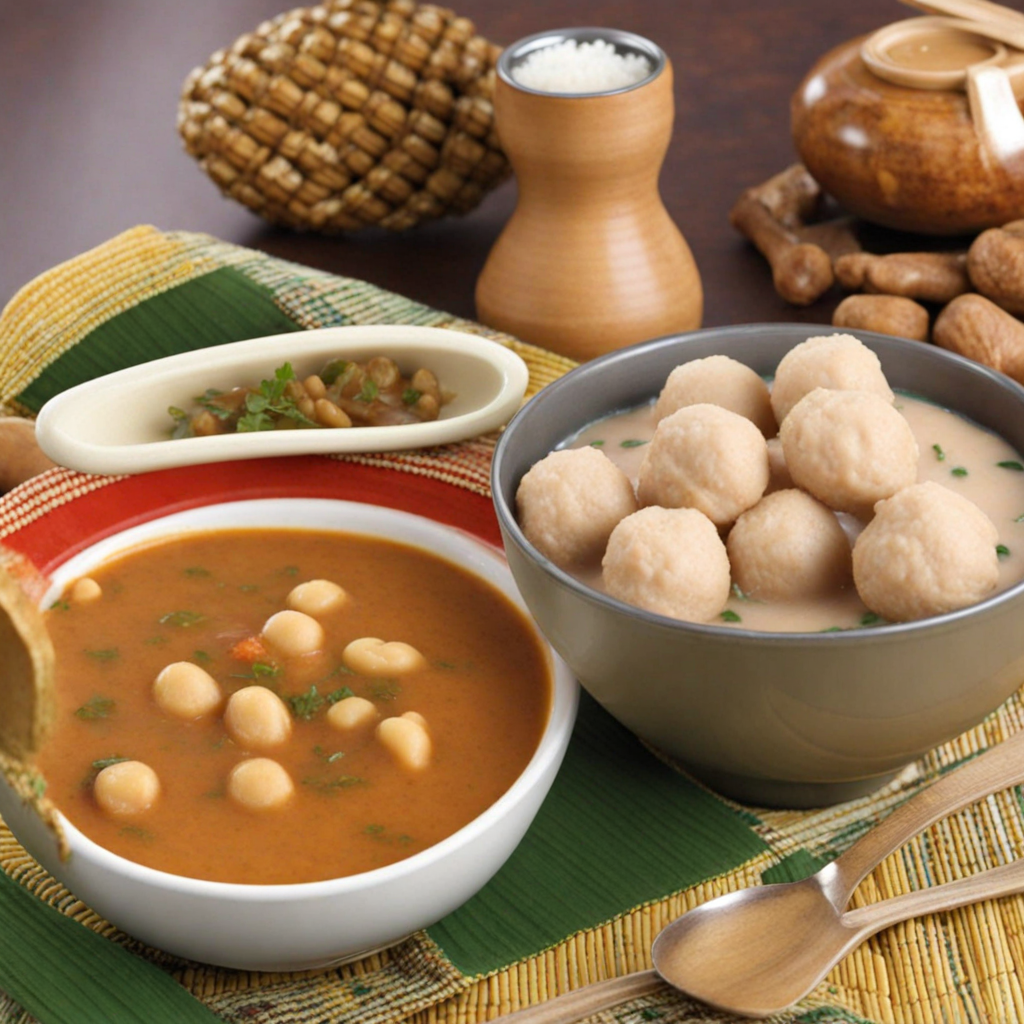Pineapple Ginger Drink
Pineapple Ginger Drink is a vibrant and refreshing beverage that encapsulates the tropical essence of Ghana. The drink is primarily made from ripe, juicy pineapples, known for their sweet and tangy flavor, which serves as the base for this invigorating concoction. The addition of fresh ginger root introduces a zesty kick, balancing the sweetness of the pineapple with its spicy, warm undertones. This delightful combination not only tantalizes the taste buds but also offers a burst of tropical aroma that transports you straight to the sunny coasts of West Africa. To prepare Pineapple Ginger Drink, the pineapple is typically juiced or blended until smooth, allowing the natural sugars and flavors to shine. Fresh ginger is finely grated or juiced and then mixed into the pineapple base, creating a harmonious blend that is both refreshing and invigorating. Many recipes also incorporate a touch of lime or lemon juice, enhancing the drink's acidity and adding a layer of complexity. Served chilled, this drink is the perfect thirst-quencher, particularly in the warm, humid climate of Ghana. Pineapple Ginger Drink is not just a treat for the palate; it is also celebrated for its health benefits. Pineapple is rich in vitamins and minerals, particularly vitamin C and bromelain, which are known for their anti-inflammatory properties. Ginger adds its own health benefits, including aiding digestion and boosting the immune system. This delightful beverage is often enjoyed at gatherings, celebrations, or simply as a daily refreshment, making it a beloved staple in Ghanaian culture and a must-try for anyone seeking to explore new and exciting flavors.
How It Became This Dish
The History of Pineapple Ginger Drink in Ghana #### Origins of Pineapple Ginger Drink The Pineapple Ginger Drink, widely cherished in Ghana, is a refreshing beverage that combines the tropical sweetness of pineapple with the spicy warmth of ginger. This drink is a perfect reflection of Ghana’s rich agricultural heritage, where both ingredients flourish in its fertile soil and favorable climate. Pineapple, a native fruit of South America, was introduced to West Africa in the 16th century by European explorers. The fruit quickly became popular for its sweetness and versatility, flourishing in the coastal regions of Ghana, where it was cultivated for local consumption and trade. Ginger, on the other hand, has its roots in Asia, particularly India and China, but was brought to West Africa through trade routes. The tropical climate of Ghana provided an ideal environment for ginger cultivation. Over time, the local populations embraced ginger not only for its culinary uses but also for its medicinal properties. Combined, pineapple and ginger create a harmonious drink that embodies the agricultural bounty and culinary ingenuity of Ghana. #### Cultural Significance In Ghana, the Pineapple Ginger Drink is more than just a refreshing beverage; it is an integral part of cultural practices and social gatherings. It is often served during traditional ceremonies, family celebrations, and communal events such as weddings, funerals, and festivals. The drink symbolizes hospitality and generosity, as offering a refreshing beverage to guests is a sign of respect and warmth. Moreover, the drink is often associated with health and wellness. Ginger is revered for its medicinal properties, believed to aid in digestion, boost the immune system, and alleviate nausea. Pineapple is equally celebrated for its vitamin C content and digestive enzymes, particularly bromelain. As a result, the Pineapple Ginger Drink is seen not only as a delicious refreshment but also as a healthful tonic, especially during hot seasons when hydration is crucial. #### Development Over Time The history of the Pineapple Ginger Drink in Ghana can be traced back to traditional methods of preparation. Historically, women in rural communities would handcraft the drink, utilizing fresh, locally sourced ingredients. The process often involved peeling and chopping fresh pineapples, which were then blended with water, sugar, and grated ginger. The mixture was strained to create a smooth, sweet, and spicy beverage, served chilled or at room temperature. As globalization spread throughout the late 20th century, the Pineapple Ginger Drink began to evolve. Urbanization and the influx of expatriates introduced new tastes and preferences, leading to a fusion of traditional recipes with modern techniques. In urban centers like Accra and Kumasi, the drink began to be served in restaurants, cafes, and street stalls, becoming a popular choice among locals and tourists alike. With the rise of health consciousness in the early 21st century, the Pineapple Ginger Drink also found its way into health food circles. Many began to appreciate its natural ingredients, and recipes adapted to include organic sweeteners or even sugar substitutes. Bottled versions of the drink became commercially available, expanding its reach beyond local communities to international markets. The drink’s popularity has also been fueled by the increasing global interest in African cuisines and beverages. Food bloggers, chefs, and social media influencers have showcased the Pineapple Ginger Drink, often highlighting its vibrant color and refreshing taste. This exposure has contributed to a renaissance of interest in traditional Ghanaian drinks, encouraging a new generation to explore their culinary heritage. #### Contemporary Variations In contemporary Ghana, the Pineapple Ginger Drink continues to evolve, with creative variations emerging that reflect local tastes and seasonal ingredients. Some recipes incorporate other tropical fruits, such as mango or passion fruit, enhancing the flavor profile and adding a unique twist. Others may include herbs and spices, such as mint or lime, to add freshness and complexity. In addition to variations in flavor, the presentation of the drink has also transformed. Traditionally served in calabashes or simple glassware, today, the drink is often garnished with fresh fruit slices, herbs, or even edible flowers, making it visually appealing and Instagram-worthy. This aesthetic appeal has made it popular at events and gatherings, where presentation is as important as taste. #### Economic Impact The Pineapple Ginger Drink also plays a role in Ghana's economy. The cultivation of pineapples and ginger provides livelihood opportunities for many farmers, particularly in rural areas. The drink's popularity has encouraged more farmers to grow these crops, contributing to agricultural diversification and food security. Furthermore, the commercialization of the Pineapple Ginger Drink has led to the emergence of small businesses and startups focused on producing and marketing the beverage. These enterprises not only create jobs but also promote sustainable practices and the use of local ingredients, thereby supporting the local economy. #### Conclusion The Pineapple Ginger Drink is a vibrant symbol of Ghana’s culinary tradition, reflecting the rich agricultural heritage and cultural practices of the nation. From its origins rooted in the merging of diverse agricultural influences to its contemporary status as a beloved refreshment, the drink has evolved while retaining its cultural significance. As it continues to adapt to modern tastes and preferences, the Pineapple Ginger Drink stands as a testament to Ghana's dynamic food culture, celebrating the past while embracing the future. Through this drink, the flavors of Ghana not only quench thirst but also tell a story of tradition, health, and community, connecting generations and inviting all to partake in its refreshing embrace.
You may like
Discover local flavors from Ghana


